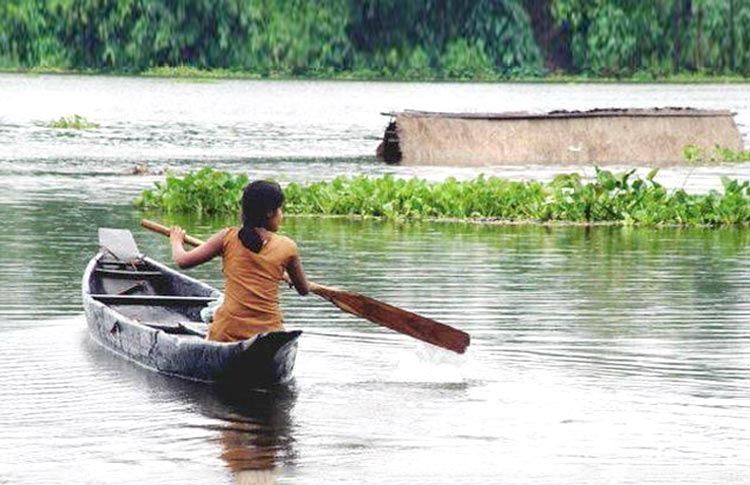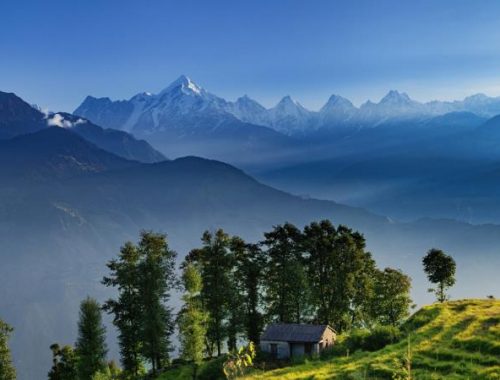Dhaka; UN warns South Asian countries of devastating flood in forthcoming years. The countries, especially Bangladesh and India, face increased risks of more frequent and severe flooding because of climate change, a UN report said.
Bangladesh and India are among vulnerable nations that will be hit hard by droughts too due to the increased concentration of pollutants and low-quality groundwater sources.
The World Water Development Report 2020 by UN-Water, published on March 21, provides a global study of freshwater sources and analyzes the link between water and climate change.
Climate will continue to change and affect societies globally as it “will affect the availability, quality and quantity of water for basic human needs, threatening the effective enjoyment of the human rights to water and sanitation for potentially billions of people,” the report noted, urging states “to make more concrete commitments to address the challenge.”
The report pointed out that monsoon flooding in 2017 affected 40 million people in Bangladesh, India and Nepal, claiming nearly 1,300 lives and putting 1.1 million people in relief camps.
“Floods could cost South Asia as much as US$215 billion each year by 2030. Floods are also expected to contaminate water sources, destroy water points and sanitation facilities, and therefore pose a challenge to universal access to sustainable water and sanitation services,” it added.
According to Chandan Kumar Duarah, the science editor of Asomiya Pratidin, sealevel rising, cyclones and lightining death attributed to climate change will increase migration pressure in neighbouring Northeastern India, specially the adjoining province of Assam.It is seen in Assam that climate change alters habitats so that the carrying capacity of lands can no longer maintain the indigenous population. The changing situation forcing Bangladesis to migrate to resource-rich locations in adjoining northeastern India. There are few unsettled locales left on earth, so these migrants inevitably come into contact with local populations. If resources are strained already, new additions to the community are generally unwelcome. Dissimilar cultural and religious beliefs exacerbate enmity between the groups, as they fear the dissolution of their identities. This is what Assam and various populations around the world are currently experiencing.
In low-lying riverine nation like Bangladesh, flooding is a common natural disaster that affects millions and kills hundreds every year, but there are few efforts to address flooding with long-term and concrete planning, experts say.
“Since 2016, we have seen a change in weather — a gradual increase in rainfall while the level of seawater is on the rise. These are the symptoms of climate change that the UN study warns about. Sadly, our country does not have a long-term plan to address annual flooding apart from some short-term plans such as relief and rehabilitation after flooding,” Sukleash George Costa, regional director of Catholic charity Caritas Rajshahi, which covers flood-prone northern Bangladesh, told UCA News.
Dykes and river embankments are often substandard and cannot withstand strong flooding, while disaster management planning fails to address local situations due to a centralized approach, he noted.
As major rivers in South Asia are transboundary rivers, so all states in the region need to formulate and follow a joint framework for river control for greater welfare of people, Costa added.
In most cases, state and NGO efforts to tackle flooding fall flat due to a lack of proper community involvement and accountability, said a professor of geography and environmental sciences at state-run Begum Rokeya University.
Experts express serious doubts whether policymakers have enough concerns about the future state of their countries in terms of climate change compared to observers. There is no doubt about more flooding and more damage as predicated, but they don’t have a long-term plan.
Climate Change




